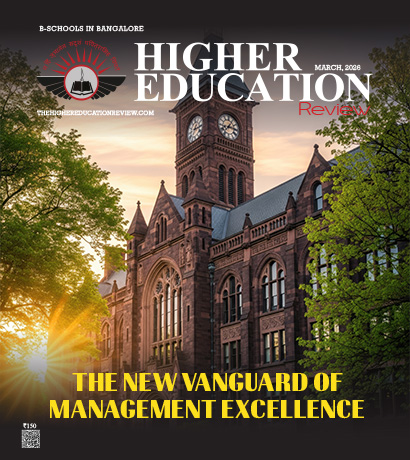AI in Education: Preserving Human Agency in an Automated World
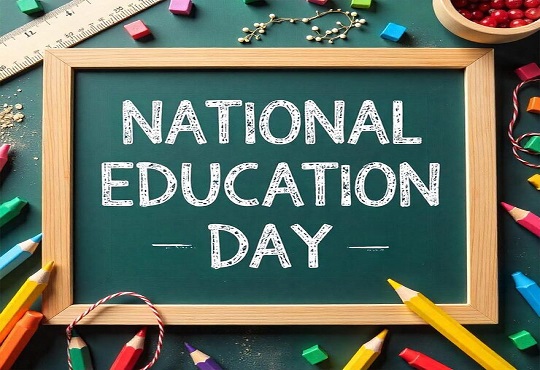 National Education Day, observed on November 11 every year, commemorates the birth anniversary of Maulana Abul Kalam Azad - India’s first Minister of Education and a visionary leader who championed the cause of learning and knowledge as the foundation of national progress. The day serves as a reminder of the transformative power of education in shaping individuals, societies, and the nation’s future. It celebrates India’s journey toward inclusive and equitable education, while also highlighting the need to adapt to contemporary challenges such as digital transformation, skill development, and lifelong learning. As classrooms evolve with technology and global perspectives, National Education Day calls upon educators, policymakers, and learners to reaffirm their commitment to quality education for all. It is a day to honor the teachers, innovators, and students who continue to make education a force for empowerment, equality, and sustainable development.
National Education Day, observed on November 11 every year, commemorates the birth anniversary of Maulana Abul Kalam Azad - India’s first Minister of Education and a visionary leader who championed the cause of learning and knowledge as the foundation of national progress. The day serves as a reminder of the transformative power of education in shaping individuals, societies, and the nation’s future. It celebrates India’s journey toward inclusive and equitable education, while also highlighting the need to adapt to contemporary challenges such as digital transformation, skill development, and lifelong learning. As classrooms evolve with technology and global perspectives, National Education Day calls upon educators, policymakers, and learners to reaffirm their commitment to quality education for all. It is a day to honor the teachers, innovators, and students who continue to make education a force for empowerment, equality, and sustainable development.
Here is what India's Education leaders and Industry Experts from the industry had to say about National Education Day and its importance.
Prof. Madhu Veeraraghavan, Pro Vice Chancellor, MAHE Bengaluru, Management, Law, Humanities and Social Sciences
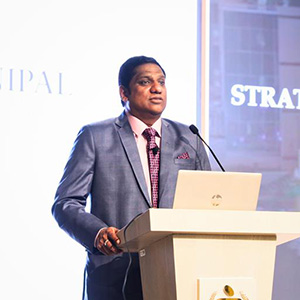 Artificial Intelligence marks a creative disruption in education, compelling us to rethink teaching, learning, and research as dynamic, interwoven processes. Our task is not to replace the human mind but to enrich it, using AI to personalize learning, deepen inquiry, and democratize knowledge. The future of education will be defined by institutions that embrace this transformation, nurturing futuristic education that trains learning itself, where educators become designers of curiosity, learners become co-creators of knowledge, and research becomes a bridge between human insight, technological intelligence, and societal impact. In this evolving landscape, the true measure of futuristic education will rest not just in the sophistication of our technologies but in the depth of our humanity. As we integrate AI into our classrooms and laboratories, our goal must be to nurture reflective, ethical, and imaginative learners, individuals capable of shaping a future where innovation and empathy grow together.
Artificial Intelligence marks a creative disruption in education, compelling us to rethink teaching, learning, and research as dynamic, interwoven processes. Our task is not to replace the human mind but to enrich it, using AI to personalize learning, deepen inquiry, and democratize knowledge. The future of education will be defined by institutions that embrace this transformation, nurturing futuristic education that trains learning itself, where educators become designers of curiosity, learners become co-creators of knowledge, and research becomes a bridge between human insight, technological intelligence, and societal impact. In this evolving landscape, the true measure of futuristic education will rest not just in the sophistication of our technologies but in the depth of our humanity. As we integrate AI into our classrooms and laboratories, our goal must be to nurture reflective, ethical, and imaginative learners, individuals capable of shaping a future where innovation and empathy grow together.
Prof Parimal Mandke, Vice–President, NIIT University
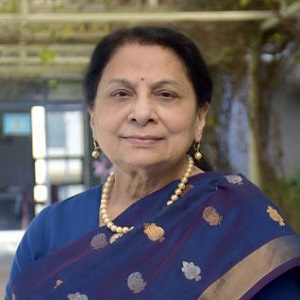 India is entering an era where the winners won’t be the ones with the most certificates, but the ones who can actually do. Build. Analyse. Invent. Solve. Collaborate. Create impact.
India is entering an era where the winners won’t be the ones with the most certificates, but the ones who can actually do. Build. Analyse. Invent. Solve. Collaborate. Create impact.
For years, academic merit was seen as the final measure of success. But today, success is being defined by capability - the ability to build, to analyse, to solve, to innovate and to adapt. Skills today have become the true differentiator.
At NIIT University, we see this shift already playing out. Global employers no longer ask just “What did you study?”, but they ask “What can you apply? What have you built? What value can you add?” And we believe this is where education must evolve. We need universities that are real-world plugged, industry-connected, and future-tech fluent and not just instruction centres. We need classrooms that prepare talent for AI age problem-solving, for entrepreneurial risk-taking, for multidisciplinary thinking and not just for exam season memorization.
Success for the next generation is going to be defined by capability, adaptability, digital fluency, curiosity, and execution power. Degrees will matter, surely, but as a foundation. What you do with that foundation is what defines your trajectory. Skills are the new currency of India’s growth decade. And if we want India to lead the world, our education system must help students become creators of value, and not collectors of degrees.
Amit Baveja, Managing Director, Burlington English India & Southeast Asia
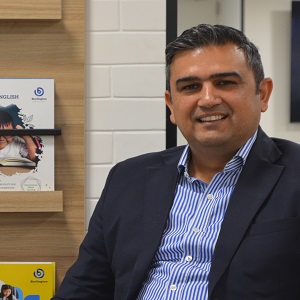 As India celebrates National Education Day, it is important to recognize that while enrollment and graduation rates have reached record highs, only 51.25% of Indian graduates are considered employable, according to the Economic Survey 2023–24. This highlights that the challenge is not access to education, but the quality and relevance of what students learn. The National Education Policy 2020 promotes holistic development, critical thinking, collaboration, creativity, and communication skills. However, students still face difficulties in communicating effectively, working in teams, and adapting to global work environments. English communication, in particular, has emerged as a crucial gateway skill. The ability to communicate fluently in English often determines success in interviews, client interactions, and international collaborations. Beyond employability, strong communication skills also build confidence and trust, qualities that employers value as much as technical knowledge.
As India celebrates National Education Day, it is important to recognize that while enrollment and graduation rates have reached record highs, only 51.25% of Indian graduates are considered employable, according to the Economic Survey 2023–24. This highlights that the challenge is not access to education, but the quality and relevance of what students learn. The National Education Policy 2020 promotes holistic development, critical thinking, collaboration, creativity, and communication skills. However, students still face difficulties in communicating effectively, working in teams, and adapting to global work environments. English communication, in particular, has emerged as a crucial gateway skill. The ability to communicate fluently in English often determines success in interviews, client interactions, and international collaborations. Beyond employability, strong communication skills also build confidence and trust, qualities that employers value as much as technical knowledge.
Dr Shilpa Kalyan, HOD, Department of Liberal Arts, Humanities and Social Sciences (DLHS), MAHE Bengaluru
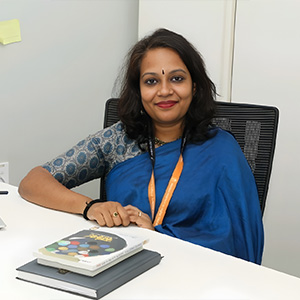 AI is reshaping the future of learning, but its true potential emerges when learners are equipped with strong AI literacy. Building critical thinking and awareness of AI biases will ensure education remains empowering and equitable.
AI is reshaping the future of learning, but its true potential emerges when learners are equipped with strong AI literacy. Building critical thinking and awareness of AI biases will ensure education remains empowering and equitable.
Sandip Weling, Chief Business Officer – Global Retail and Whole-time Director, Aptech
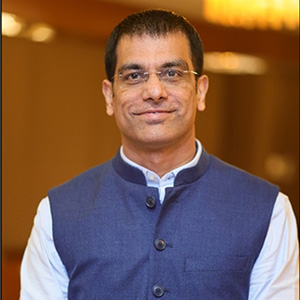 On National Education Day, we celebrate education as the cornerstone of India’s creative and knowledge-led growth. The transformative power of the Orange Economy - where art, design, storytelling, and technology intersect - is redefining opportunities for the youth and shaping the nation’s creative future. Aligned with the Hon’ble Prime Minister’s vision of positioning India as a global hub for content creation and storytelling, focused skilling and incubation initiatives are empowering a generation of creators, innovators, and professionals with future-ready capabilities. Today, education goes far beyond classrooms - it’s about cultivating storytellers, problem-solvers, and innovators who will drive India’s digital and cultural evolution. By strengthening skilling ecosystems through industry collaboration and hands-on learning, we are building a workforce that will power the next phase of India’s Orange Economy.
On National Education Day, we celebrate education as the cornerstone of India’s creative and knowledge-led growth. The transformative power of the Orange Economy - where art, design, storytelling, and technology intersect - is redefining opportunities for the youth and shaping the nation’s creative future. Aligned with the Hon’ble Prime Minister’s vision of positioning India as a global hub for content creation and storytelling, focused skilling and incubation initiatives are empowering a generation of creators, innovators, and professionals with future-ready capabilities. Today, education goes far beyond classrooms - it’s about cultivating storytellers, problem-solvers, and innovators who will drive India’s digital and cultural evolution. By strengthening skilling ecosystems through industry collaboration and hands-on learning, we are building a workforce that will power the next phase of India’s Orange Economy.
Dr. Umesh Kothari, Assistant Dean, PG Programs, SP Jain School of Global Management

Education is undergoing a profound transformation not because of technology alone,but because of the boldness of a new generation redefining how learning happens. Gen Z and Gen Alpha refuse to be confined by rigid, one-size-fits-all systems. They are harnessing AI to learn on their own terms through personalized tutors, gamified learning, and micro-courses that fit seamlessly into their lives. AI has evolved from a passive information source into an active partner, offering instant feedback, relentless practice, and the freedom to fail privately before stepping into the real world.
For instance, at SP Jain Global, our AI-enabled Learning Tutor embodies this evolution. It empowers students to master foundational material independently, to iterate and refine their skills with precision, and to arrive in class ready not for lectures, but for deep, critical, and creative debate. The classroom becomes a space for ideas, collaboration, and intellectual combat where human ingenuity takes center stage. This is the new face of education: dynamic, adaptive, and deeply personal. The role of AI is not to replace teachers, but to elevate learners, turning education from a static process into a living, evolving journey of mastery. Everything else has already been disrupted.

